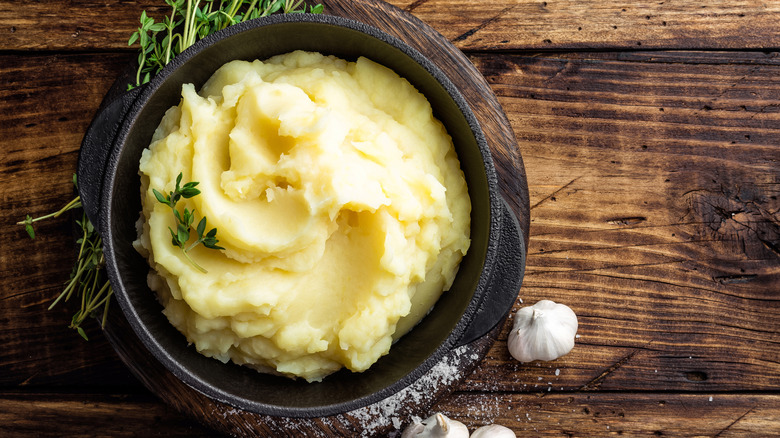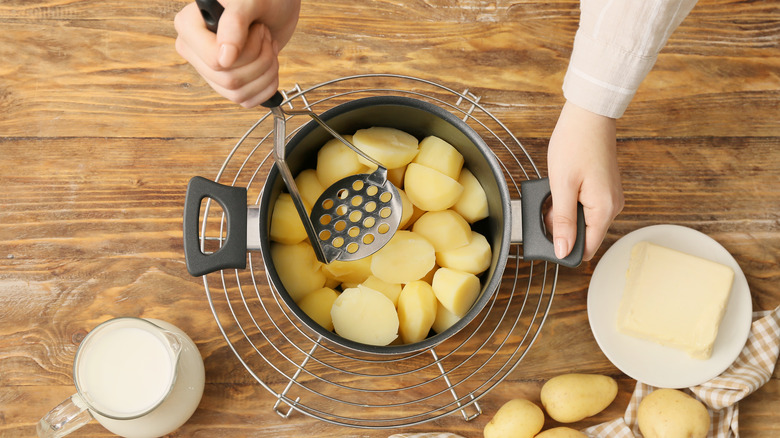The Reason You Should Add Baking Powder To Your Mashed Potatoes
I don't like fluffy mashed potatoes, said no one ever. The fluff factor makes a bowl of creamy mashed spuds even more irresistible. Make them thick like glue or flat and watery, and they'll be passed down the table and directly into the trash bin.
While making mashed potatoes is pretty straight forward, it's not as simple as cooking and mashing to get the perfect side dish. To ensure your potatoes come out fluffy, it begins with the right potato. Waxy ones, like red bliss or fingerling, don't have enough starch to soak in the added dairy like milk and butter, resulting in potatoes that are gummy, according to Kitchn.
To avoid gluey mashed potatoes, The Spruce Eats recommends cutting raw potatoes into uniform pieces. Place them in cold water and then bring them to a boil. Dropping them in hot water causes the outside of the potatoes to cook first. Starting from cold ensures they will cook evenly. After boiling, potatoes should be drained thoroughly and then returned to the hot pot for a few minutes to dry them out. Excess water turns them soupy.
When you're ready to add milk to the mash, warm it first. Cold milk requires more mixing to absorb into the potato. Overworking the potatoes activates starch, which turns mashed potatoes into glue. But there's one more unexpected step to elevate your mashed potatoes to a level of culinary art. It's to add, of all things, baking powder.
Why baking powder makes for fluffy mashed potatoes
Baking powder is often confused with baking soda. Both are leavening agents but, according to Arm & Hammer, baking soda is used in recipes that include an acid (think buttermilk, lemon, or yogurt). Baking powder, on the other hand, is sodium bicarbonate (baking soda) mixed with cream of tartar (an acid). This tiny difference makes a big impact on your baking. When an acid comes into contact with the alkaline sodium bicarbonate, carbon dioxide bubbles are formed. This creates a rise.
While we usually talk about rises in terms of dough, it can also apply to mashed potatoes. Pop just a pinch of powder into your pot, per WonderHowTo, and voilà! Mashed potatoes so light and airy they might be confused for heaven in a bowl.
If you are out of baking powder, will baking soda do? Woman's World says yes, but that adding baking soda requires a delicate hand. Too much and the soda imparts a bitter and salty taste. So it's best to start with a light sprinkle; and remember the potatoes will need some sort of acid added to them to kickstart the chemical process. Idaho Potato suggests buttermilk for an added creamy tang.

